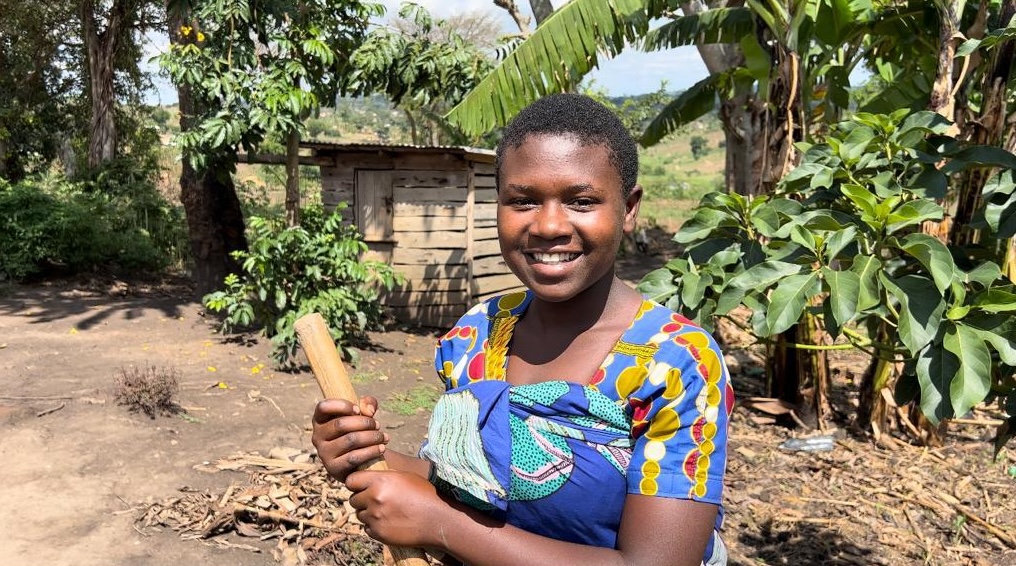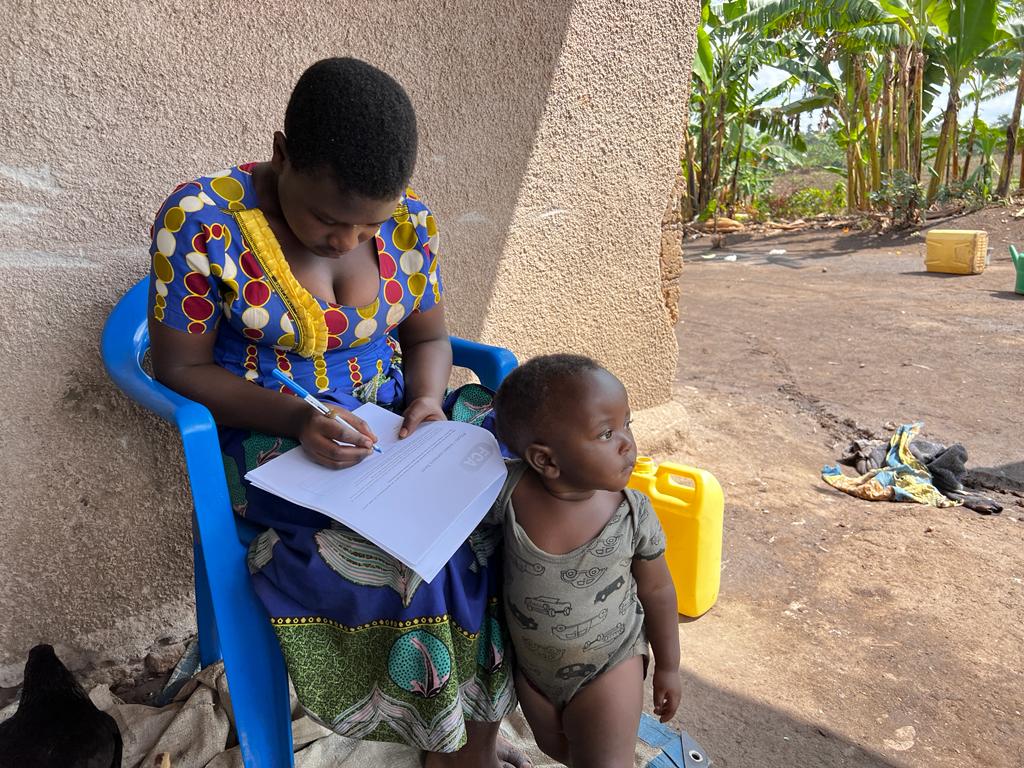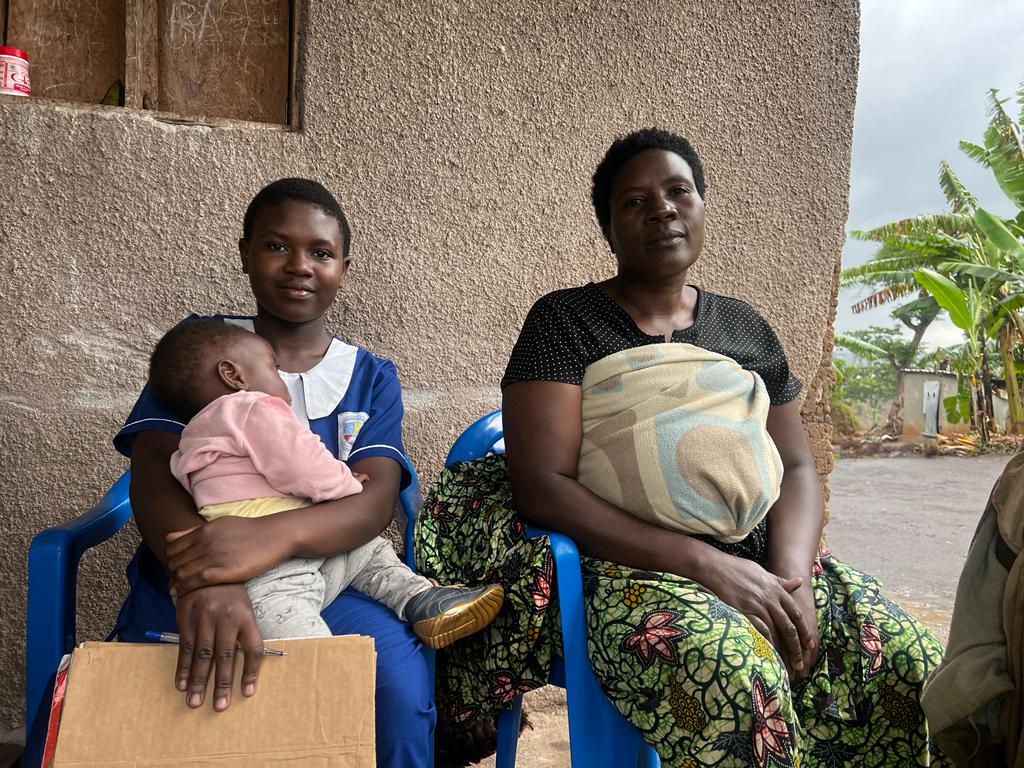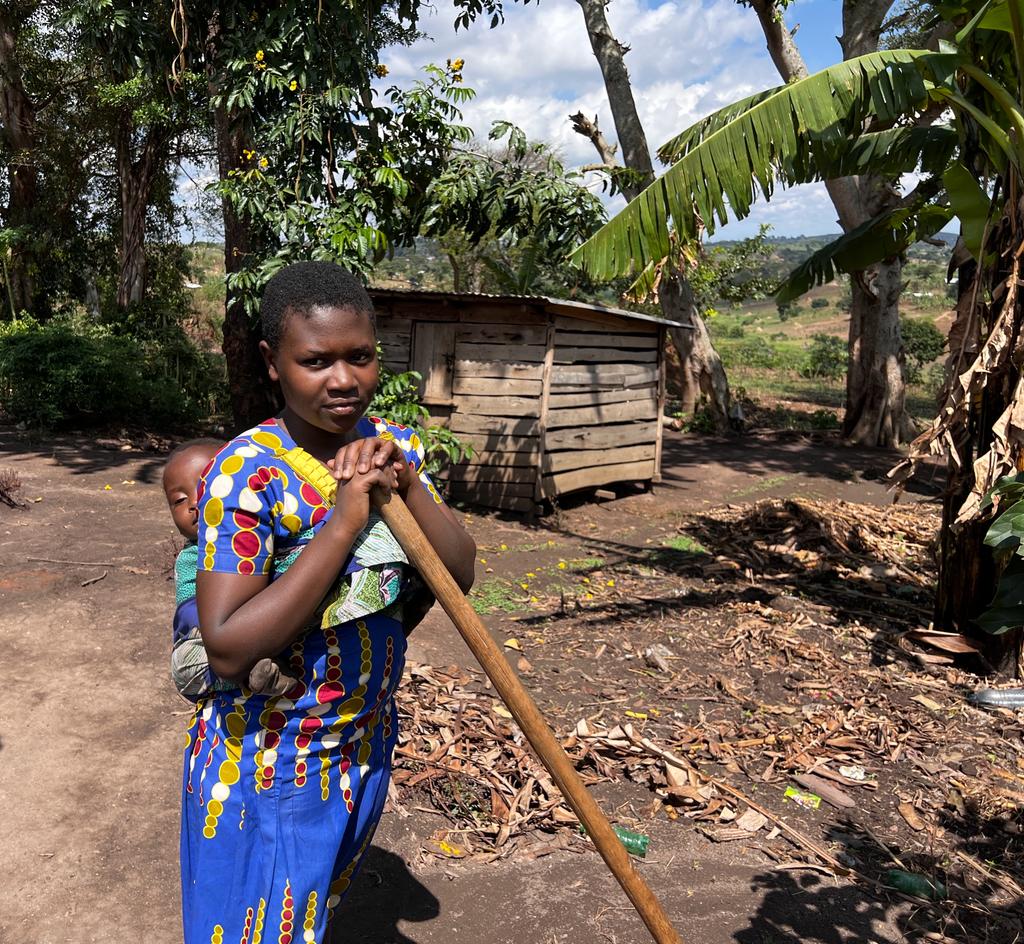Day of the Girl Child 2023: Aderine went from adversity to aspiration

October 11th is celebrated worldwide as the International Day of the Girl Child, a day dedicated to promoting girls’ rights and opportunities, while recognising the unique challenges girls face.
AT JUST 15 years old, Uwamahirwe Aderine found herself in a challenging situation. Experiencing peer pressure from her social group, she had a relationship with a man that led to a pregnancy.
She had grown up in Rwamwanja refugee settlement in southwestern Uganda, her family and nine siblings having fled the Democratic Republic of Congo to Uganda in 2013 to seek refuge and a better life.
The news was a shock for both her and her parents, who were very disappointed. It was clear that Aderine was far too young to become a mother, and her dreams of education seemed to be over.
Support and a second chance
Through Finn Church Aid Uganda and their “Back to School” campaigns, Aderine was identified as a girl in need of help. The organisation provided crucial support to her through a career guidance assistant, who closely followed her journey and persuaded her back to school.
When Aderine was ready to rejoin the education system, she was enrolled in the Accelerated Education Programme (AEP) supported by European Union humanitarian aid (ECHO) funding. The AEP programme is designed to cater to the unique needs of young mothers and adult students.
The support allowed Aderine to refocus on her life and commitment to education. Despite her young age, she realised the immense importance of education in her life and her future aspirations.
“Because of school, I am more focused on my studies,” she says, confiding in us also her dream to become a teacher herself.

Aderine’s family play a crucial role
Aderine’s parents, particularly her mother, Nzitukuze Perache, were instrumental in her journey. Though initially disappointed, they decided to support her decision to carry the pregnancy to term. Ms Perache, the mother of ten children, values education deeply, as she herself never had the chance to receive it. She, like many mothers, appreciate the importance of education as a means to a better life, not just for her family but for the community at large.
“Education is very important especially for girls. Instead of getting married, they need to finish school so they can have a bright future. I didn’t manage to complete school, but I work hard so my children can go to school and live a better life than me.” Ms Perache tell us.

The importance of educating girls
Aderine’s story is a testament to the resilience, strength, and determination of girls worldwide. The International Day of the Girl Child serves as a reminder that every girl deserves the chance to pursue her dreams and contribute to a more equitable and better world. It is a day to acknowledge and address the challenges that girls face, promote gender equality, and support their right to education.

The right to quality education for all is central to FCA’s work. While attention over the past years has been called to the importance of offering girls more opportunities, much work remains to be done. Climate change and the COVID-19 pandemic further increased the burden on girls and threaten to reverse progress already made. But with adversity comes resourcefulness, creativity, tenacity, and resilience.
Hundreds of millions of girls have shown time and time again that given the skills and the opportunities, they can be the changemakers driving progress in their communities. They need the international community to invest in this potential, not just pay lip service.
Finn Church Aid works to support girls’ access to education through efforts like Uganda’s Accelerated Education Programme, but also much more widely, providing school supplies, dignity kits, awareness campaigns, supporting parents’ livelihoods, and investing in schools, classrooms and teachers.
Read more about our work in Uganda.
Text and photos: Kadlah Nabakembo